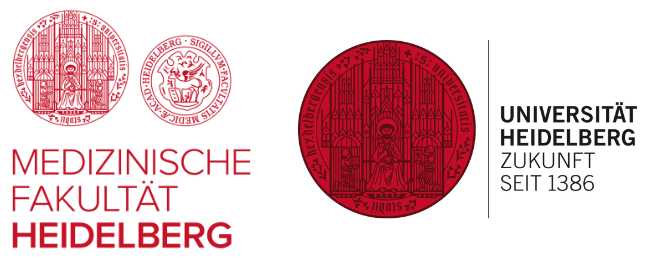FrameIntell Workshop „Intelligenz“
For the full agenda and detailed schedule, please refer to the workshop program.
Background
FrameIntell is an interdisciplinary project, in which domain experts from the fields of computer science /NLP, neuroscience, philosophy, as well as linguistics work together to explore concepts of 'intelligence' in life sciences and artificial intelligence. Our hypothesis is that there are diverse concepts of intelligence in biology, psychology, and cognitive sciences, increasingly influenced by AI concepts. Our work combines in-depth analysis of selected papers with large corpora from PubMed and Rxiv repositories to understand the interactions between life, psychological, and cognitive sciences concepts with emerging concepts from computer science.
Workshop
From February 22-24, 2024, we invited leading experts from the fields of neuroscience, cognitive science, information technology, philosophy, and linguistics to discuss different disciplinary approaches to the phenomenon of intelligence, both in biological as well as artificial systems.
Discussions
Discussions focused on topics such as the evolution and future of complex cognition systems, the fast development of large language models and the public discourse around artificial intelligence. Discussions also addressed central questions such as intelligence at a neural level, the intelligence capacity of machines and the general usefulness of comparing artificial and biological intelligence. The philosophical speakers provided profound insights and encouraged critical reflection on this conceptual foundation. They shed light on important aspects of human and machine cognition and showed how philosophical theory work influences social issues.
Speakers
Aljosha Neubauer, Graz
In his talk, “The Future of Human Intelligence in the Mirror of Neuroenhancement and Artificial Intelligence," Aljosha Neubauer explored the current distinctions between human and artificial intelligence. He discussed definitions of intelligence and the predictive power of intelligence measurements. While addressing issues and potentials of intelligence enhancement in humans, he highlighted the implications for future education, how intelligence can be trained or modified. Identifying key skills and attributes that schools could foster to prepare students for an AI-driven future.
Onur Güntürkün, Bochum
Onur Güntürkün addressed intelligence in humans and animals from a comparative and evolutionary perspective. Two major lines in evolution developed endothermy, the internal generation of a high, constant body temperature: birds (and some of their predecessors and mammals. This required and triggered the development of the metabolically very costly high-level central nervous systems in both lines. Birds and the most intelligent mammals (apes and humans) show astonishing parallels in their associative neuronal networks - hence, from this convergent evolution we may derive informed hypotheses about the fundamental structural and functional requirements for high-order cognition.
Beate Krickel, Berlin
Beate Krickel presented a talk entitled "Is unconscious seeing really SEEING?". She explored whether the concept of seeing can and should be applied to the phenomenon of unconscious seeing. She emphasized the merits of "conceptual engineering" as a supplement to the more traditional approach of concept analysis as a promising attempt to analyse new scientific and technological developments that challenge our everyday concepts.
Michael Gertz, Heidelberg
In the past few years, large language models (LLMs) such as ChatGPT are dominating the news in terms of their steadily improving capabilities to produce high quality texts and images in different application contexts, such as questions answering, reasoning, conversations, or summarization. In his talk “Large Language Models – ChatGPT and the Like”, Michael Gertz briefly reviews the recent history of LLMs and generative AI in general and then focuses on the evaluation of LLMs. The aspect of evaluation has become crucial for the application of LLMs as one expects such models to be reliable, fair, unbiased, and resonate with universal values, to name just a few of many requirements. These requirements are known to be very hard to evaluate in general, considering all possible contexts and cultural settings, and therefore raise several ethical issues that were lively discussed after the presentation.
Friedemann Vogel, Siegen
“Bot or Not: The Semantic Battle with Discourse Machines": In his presentation, Friedemann Vogel explored the challenges posed by new media technologies for the reliable authentication of individuals. He utilized an audio example wherein a publicly accessible voice articulated a fabricated text, illustrating the impact of AI-generated content. This phenomenon highlights the emerging opportunities and risks within the spectrum of AI enthusiasm and the apprehensions concerning discourse machines (=Diskursautomaten). The presentation primarily focused on the realistic and strategically communicated dangers that large language models (LLMs) and chatbots present to the culture of public debate.
Abigail Morrison, Jülich
Abigail Morrison presented a systematic account of basic properties of single neurons and neuronal networks. Single neurons can perform several context- and input-dependent computations, including simple pattern recognition, detection of input correlations and predictions of input. Connecting these devices enables neuronal networks to generate operations of astonishing complexity: self-organized learning, targeted operations (e.g., in robotics), and language generation (LLMs). While the construction of present-time artificial neuronal networks is not biologically plausible, it comes close to a performance which reminds of (human) intelligence. Thus - when should we start calling them intelligent?
Hermann Kohlstedt, Kiel
Hermann Kohlstedt guided us through the history of informatics and computer design, before asking for parallels and differences towards brains and human intelligence. The information processing capacity at low energy consumption (~25 W) of human brains are astonishing. Biologically inspired information processing devices offer a chance to benefit from these properties and to devise new technologies with high information processing capacity, flexibility, and low energy needs. The DFG-funded Collaborative Research Center 1461 in Kiel and Lübeck joins biologists, engineers and computer scientists to follow this philosophy.
Bert Heinrichs, Bonn
Bert Heinrichs addressed the fundamental question of whether machines can be described as intelligent. By drawing on the distinction between original and derived goal-directedness and intelligence, he concluded that some AI models can be ascribed derived intelligence. Original intelligence, he argues, requires independent goal-setting, which AI models are currently unable to achieve.
Marcel Kückelhaus, Heidelberg
Marcel Kückelhaus approached the question of how artificial intelligence turns into a monster by analysing several examples of German newspaper articles on AI that depict those technologies in an unflattering manner. The focus of the multimodal analysis lay on the linguistic development of a narrative and the connection to long established narratives, narrations and myths.
Karola Kreitmair, Madison, WI
Karola Kreitmair investigated the complex interrelationships between intelligence and consciousness. She argued that consciousness is neither necessary nor sufficient for intelligence. She defended the thesis that consciousness rather than intelligence is associated with the attribution of a moral status, underlining the need for a more differentiated view of intelligence and consciousness and their ethical implications.
Birgit Beck, Berlin
Birgit Beck critically compared the way we deal with anthropomorphism in our interaction with animals and artificial intelligence. She argued that Morgan's Canon’s, a principle that (similar to Occam’s razor) advises to avoid the unnecessary assumption of higher psychological faculties in animals, if their behaviour can be fairly explained on the basis of a lower psychological faculty, should also be applied to the field of artificial intelligence.
Samuel Camenzind, Wien
Samuel Camenzind explored the legal and philosophical options of extending the concept of dignity to animals, plants, and machines. He presented an elaborate framework for analysing the moral status of non-human entities as well as different forms of instrumentalization.
Open Spaces
To promote interdisciplinary discussion and exchange, all participants were invited to join one of three parallel Open Spaces. The topics of the Open Spaces were determined by the participants.
Open Space 1
The first open space was dedicated to the question of how ethical requirements in the development and implementation of AI models can be formulated and implemented in a measurable and practical way. The participants underlined the need for greater interdisciplinary cooperation in order to develop feasible ethical guidelines.
Open Space 2
The second discussion group focused on the anthropomorphization of AI. The participants discussed the social and ethical implications of the increasing humanization of AI systems, with a particular focus on the challenges of simulated empathy and its impact on the interaction between humans and machines.
Open Space 3
The third group discussed the associative foundations of cognition, both in artificial systems and in the human brain. Insights into the parallel and divergent mechanisms of information processing were discussed, which illustrated the complexity and diversity of cognitive processes.
Conclusion
The workshop fostered a highly productive interdisciplinary exchange that significantly broadened our understanding of the similarities and differences between biological and artificial intelligence. It also provided the impetus for future interdisciplinary cooperation between participants, which promises valuable inputs for our project as well as our general understanding of biological and artificial intelligence.


